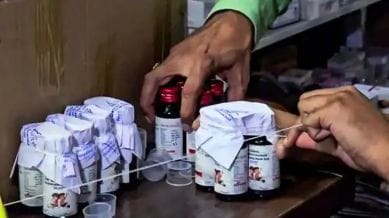Anonna Dutt is a Principal Correspondent who writes primarily on health at the Indian Express. She reports on myriad topics ranging from the growing burden of non-communicable diseases such as diabetes and hypertension to the problems with pervasive infectious conditions. She reported on the government’s management of the Covid-19 pandemic and closely followed the vaccination programme. Her stories have resulted in the city government investing in high-end tests for the poor and acknowledging errors in their official reports. Dutt also takes a keen interest in the country’s space programme and has written on key missions like Chandrayaan 2 and 3, Aditya L1, and Gaganyaan. She was among the first batch of eleven media fellows with RBM Partnership to End Malaria. She was also selected to participate in the short-term programme on early childhood reporting at Columbia University’s Dart Centre. Dutt has a Bachelor’s Degree from the Symbiosis Institute of Media and Communication, Pune and a PG Diploma from the Asian College of Journalism, Chennai. She started her reporting career with the Hindustan Times. When not at work, she tries to appease the Duolingo owl with her French skills and sometimes takes to the dance floor. ... Read More
WHO raises medical alert about the three cough syrups linked to MP children deaths: Why is this significant?
This is the fifth alert by the WHO for syrups made in India

Days after the deaths of children in Madhya Pradesh after allegedly consuming contaminated cough syrups, the World Health Organization (WHO) has raised a medical alert about the three syrups that were found to contain higher than permissible limits of di-ethylene glycol (DEG).
The alert comes after the inter-governmental agency had sought clarification from the Central Drugs Standard Control Organisation (CDSCO), India’s apex drug regulator, on whether the contaminated medicines had been exported to other countries. WHO was informed that these medicines were not intended for export, and there was no evidence of illegal export.
monthly limit of free stories.
with an Express account.
“On 8 October, the Central Drugs Standard Control Organisation (CDSCO) of India reported to WHO the presence of Diethylene Glycol (DEG) in at least three oral liquid medicines. This followed information identified by WHO on 30 September 2025 of localized clusters of acute illness and child fatalities in India,” the alert said.
The three contaminated syrups included Tamil Nadu-based Sresen Pharmaceutical’s Coldrif, which was found to contain 48.6 per cent DEG. Only 0.1 per cent of DEG is permissible in syrups as it can be toxic to humans.
The other two include Gujarat-based Rednex Pharmaceutical’s Respifresh, which contained 1.3 per cent of DEG, and Shape Pharma’s ReLife syrup, which had 0.6 per cent of DEG.
“CDSCO has confirmed that relevant state authorities have ordered an immediate halt to production at implicated manufacturing sites and have suspended product authorizations. In addition, a recall of the contaminated products has been initiated by relevant state authorities,” WHO said.
This is the fifth such medical alert issued by WHO for syrups made in India since a spate of such incidents began in 2022, with the death of at least 70 children in Gambia. The investigations since have failed to link the deaths of the children in Gambia to the cough syrups.
“Since October 2022, WHO has issued 7 Medical Product Alerts concerning multiple batches of contaminated liquid oral medicines, many of which were marketed for paediatric use and exported widely to LMIC. WHO also issued 2 Alerts concerning falsified bulk chemicals masquerading as pharmaceutical quality excipients,” the WHO said in a reply to The Indian Express.
Both ethylene and diethylene glycol enter as contaminants in syrups through a permitted solvent called polyethylene glycol. This compound also has industrial uses as an antifreeze, heat transfer fluid, and emulsifier, among others. Hence, there are two grades of this raw material available: an industrial grade that may contain a higher level of DEG, and a pharmaceutical grade, where the contaminant level must be strictly below the permissible limits.
WHO said it is helping regulators, even in low-resource settings, to test for ethylene glycol and diethylene glycol contamination. Additionally, through the South-East Asia Regulatory Network, ongoing discussions are taking place with the Indian Pharmacopoeia Commission (IPC), which has offered to support regional capacity building for EG/DEG testing, WHO said.